The recognition of UN representation row between the junta’s State Administration Council (SAC) and the parallel National Unity Government (NUG) has been brewing for quite a while since the military coup on February 1 and it seems that this will drag on until the end of the year, without making any decision.
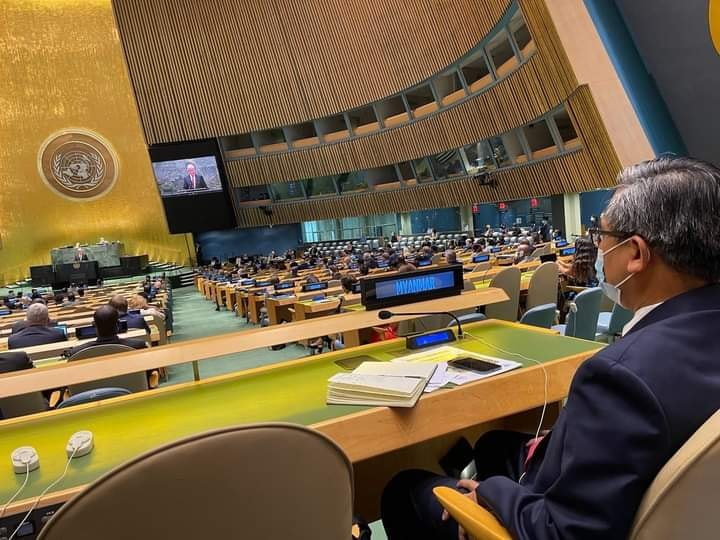
According to the NUG Facebook news, UN Ambassador Kyaw Moe Tun, who declared its loyalty to the NUG, attended the closing session of the 75th Session and opening session of the 76th Session of the United Nations General Assembly (UNGA) on September 14 held at General Assembly Hall of the United Nations, New York, on September 14 at 3:00 pm.
Reportedly at the meeting, Secretary-General of the United Nations H.E. Mr. António Guterres gave a statement and President of the seventy-fifth UN General Assembly H.E. Mr. Volkan Bozkir also gave his farewell statement. Then, President-elect of the seventy-sixth session of the United Nations H.E. Mr. Abdulla Shahid took the oath of office.
The 1st plenary meeting was opened by the President of the General Assembly H.E. Mr. Abdulla Shahid following the appointment of the members of the Credentials Committee. The 9 member Credentials Committee was formed consisting of the Bahamas, Bhutan, Chile, China, Russia, Sierra Leone, South Africa, Sweden and the United States.
Accordingly, the Credentials Committee will have to deal with Myanmar’s UN representation issue and perhaps as well tackle, Afghanistan and Guinea issues, in which the former hasn’t named its ambassador yet and the latter, still in the midst of unclear military coup situation replacing the elected former government.
Foreign Policy report on September 13 regarding the Myanmar UN representation row writes “The United States and China have brokered an agreement that will effectively block Myanmar’s military rulers from addressing the United Nations’ General Assembly next week, according to diplomats, dealing a blow to the junta’s quest for international legitimacy after it took power in a coup earlier this year.”
“But the pact—which was hammered out during weeks of behind-the-scenes diplomatic negotiations—will require Myanmar’s defiant, still-serving U.N. ambassador who represented the previous government to hold his tongue during the high-level event, refraining from the tough rhetoric he deployed last year in denouncing the military’s power grab. It will also delay any effort by Myanmar’s rulers to press for U.N. membership to recognize it as the legitimate government in Myanmar, at least until November,” according to the Foreign Policy report.
This seems to be an accepted deal and thus the recent status quo situation is going to be maintained at least up to November or the end of the year.
“According to the rules of the UN General Assembly, if there is a dispute over the right to represent the countries concerned, the current representative must remain in place until the issue is resolved,” writes the RFA Burmese section on September 14.
Analysis
In a rare case, China and US were able to find a compromise in order to avoid a proxy-like confrontation in Myanmar theater and able to demonstrate cooperation between the UNGA and United Nations Security Council (UNSC), as confrontation between the two UN institutions may call in question the functionality of the whole UN system.
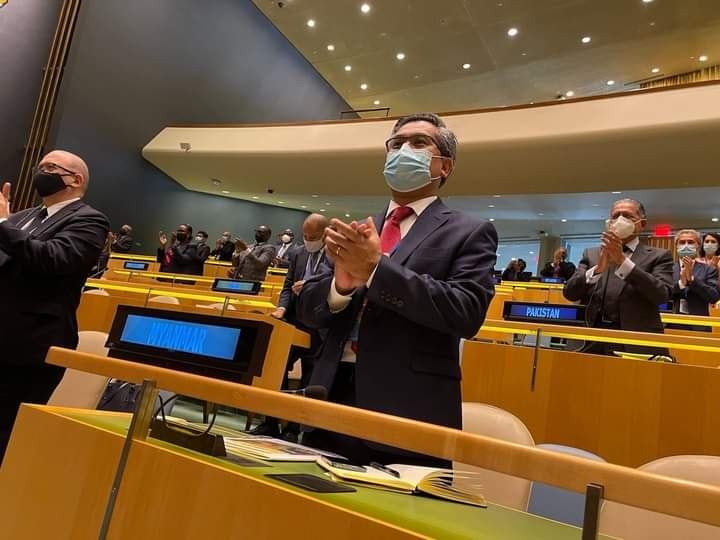
Another point to ponder is why China, which is suspected all along to be siding with the coup-maker military junta has now changed tune, all of a sudden.
The answer to this may be that it cares international criticism and also keen to cultivate its soft power, particularly where Myanmar is concerned.
In the past, its policy is to deal only with the junta and didn’t pay much attention to the people in trying to plough through its mega projects, to facilitate its Belt and Road Initiative (BRI). But in the aftermath of the February coup, China saw the rising tide of people’s dissatisfaction railed against it, in form of massive protest in front of its diplomatic mission within the country and as well embassies abroad in many countries, including burning of Chinese investment facilities within the country.
In short, as a country working towards becoming a super power, it is keen to cultivate its soft power to woo the population and as well political and civil society organizations through government-to-government, party-to-party, and people-to-people strategic approach. In other words, it is the three pillars of Chinese foreign policy, which are the state, the party, and the people, at work.
Thus, it is not a wonder that that China and US were able to thrash out a compromise interim solution regarding Myanmar’s representation issue in the UN.
To sum up, the two big powers and many UN members may push for political dialogue among stakeholders of Myanmar, whether they like it or not, which will be led by the ASEAN. The UN representation row may not be resolved until there is a decisive outcome, which means either one comes out as a winner or a compromised political settlement is reached between the contenders.





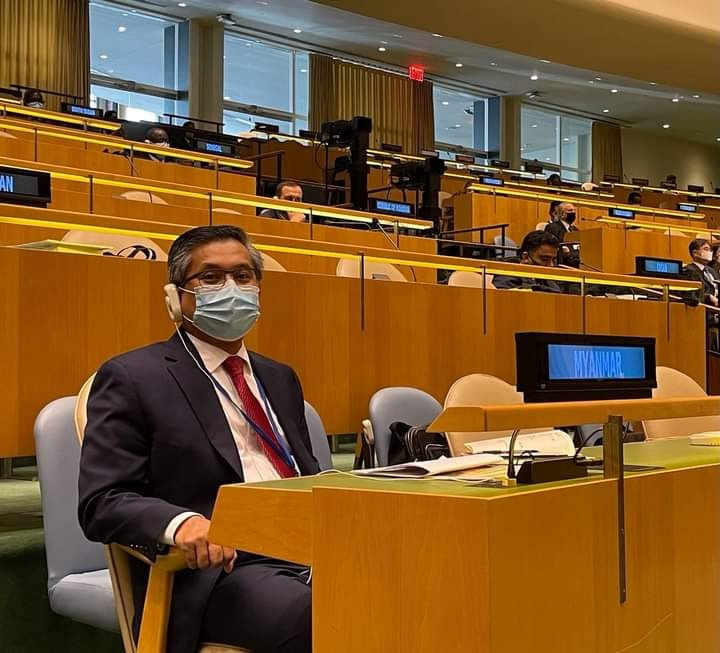
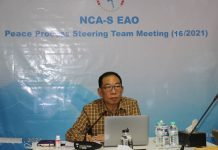
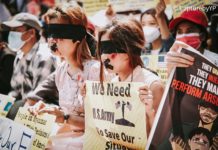






Leave a Comments